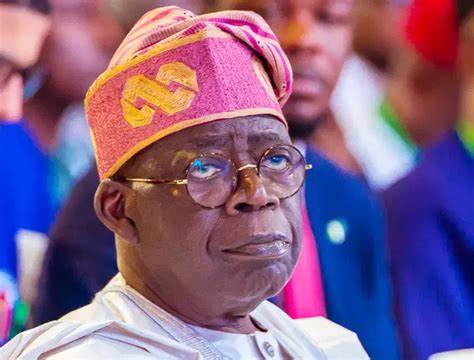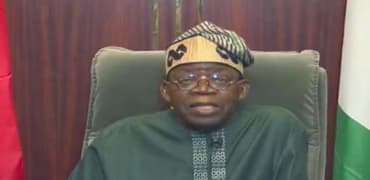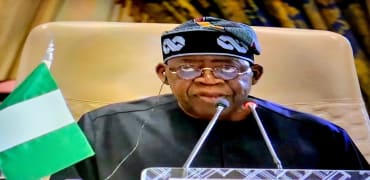FG Offers N120 Billion to Companies That Can Train 60,000 Youths in Just 3 Months
FG Offers N120 Billion to Companies That Can Train 60,000 Youths in Just 3 Months
By Achimi Muktar
In what could be one of the most ambitious youth empowerment moves in Nigeria’s history, the Federal Government has rolled out a staggering N120 billion program to fund companies capable of training 60,000 youths in just three months — and the clock is already ticking.
Announced during the Adolescent and Youth Ministerial Dialogue on Wellbeing, Health, and Development in Abuja, the initiative promises not only hands-on skill acquisition for vulnerable youths but also starter packs to launch them into the workforce immediately after training.
Speaking at the event, Minister of State for Education, Prof. Suwaiba Ahmad, represented by her Senior Special Assistant, Prof. Ali Idris, said the initiative will target young Nigerians across all six geopolitical zones, with special attention to Internally Displaced Persons (IDPs) and other underserved populations.
“If you have a registered company capable of training at least 60,000 people within three months, the ministry will pay that company,” Prof. Ahmad declared. “Trainees will also get starter packs upon completion.”
The initiative is a cornerstone of President Bola Tinubu’s Renewed Hope Agenda, designed to combat Nigeria’s soaring unemployment rate with sustainable, skills-based empowerment. According to Prof. Ahmad, the programme is being shaped with the youth, not just for them.
“We are working with young people to identify the areas they consider most critical. Once stakeholders meet, we move to implementation,” she said.
With rising inflation, a struggling economy, and an exodus of major firms from Nigeria, experts warn that relying solely on white-collar government jobs is no longer a feasible path for most youths. Instead, the government is betting big on vocational and digital skills.
This initiative, however, doesn’t stand alone.
The government has already launched multiple programmes aimed at bridging Nigeria’s massive skills gap:
Digital Literacy for All (DL4ALL): Aiming to train 30 million Nigerians through a joint effort between NITDA and NYSC.
DeepTech Ready Upskilling Programme: Targeting 20,000 youths in data science and AI.
SBTS-DBI Partnership: Equipping Nigerian youths with globally relevant digital skills in collaboration with a U.S.-based tech firm.
These moves signal a clear shift toward tech and skill-based empowerment, in alignment with global job market trends.
Youth representatives like Jonathan Abakpa, Programme Officer for Plan International Nigeria, stressed the importance of keeping young people at the centre of policy decisions.
“This year’s dialogue allows youth to engage directly with ministers and demand implementation of their priorities,” Abakpa said.
He credited youth-led advocacy for pushing the government toward increased budget allocations in education and health, but warned that urgent issues like early marriage, teenage pregnancy, and out-of-school children must still be addressed head-on.
If you’re a company with capacity to train thousands, this is your moment. If you’re a young Nigerian searching for opportunity, this could be your entry into the job market.
With billions on the table, policy makers listening, and the private sector being called to action, the real question now is:
[23/04, 11:26] Codeflexng: FG Reforms the Best Thing for Nigeria’s Future.
By Achimi Muktar
As Nigerians continue to grapple with the biting effects of recent economic reforms, Finance Minister Wale Edun has a message: the pain is temporary, but the gains will be permanent.
Speaking from Washington, D.C., at the ongoing 2025 IMF-World Bank Spring Meetings, Edun reaffirmed the Tinubu administration’s bold economic moves, insisting they are laying the groundwork for long-term economic resilience that could lift millions out of poverty.
“We’ve made significant progress in stabilising Nigeria’s economy over the past year. Now, the focus shifts to rapid, inclusive growth and job creation,” Edun said confidently.
Despite public frustration over rising living costs and fuel subsidy removals, Edun argues that these harsh reforms are the medicine Nigeria needs to cure decades of economic stagnation and fiscal mismanagement.
The Bigger Picture: Pain Now, Prosperity Later?
President Bola Tinubu’s economic reset has drawn criticism at home, but on the global stage, it’s gaining respect. According to Edun, the government’s strategy is built on three pillars:
Fiscal consolidation
Expanding social protection
Unlocking private sector investment
These priorities were front and center as Edun used the global platform to pitch Nigeria’s new economic agenda, aiming to attract international partners and investors to the country’s transformation story.
“This is a timely opportunity for strategic discussions that can shape Nigeria’s economic future,” Edun added.
Reform, Resilience, and Results
Since Tinubu took office, the administration has pursued aggressive economic reforms, including the controversial removal of fuel subsidies, unification of the exchange rate, and efforts to plug fiscal leakages. While these moves have triggered short-term hardship, Edun insists they are essential for equitable and sustainable development.
He stressed that these reforms are not just for balancing books, but for building a more inclusive economy — one that can create jobs, reduce dependency on imports, and empower local industries.
What This Means for Everyday Nigerians
Though the reforms sting now, the government says they are necessary steps toward building a stronger, fairer economy. More jobs. More private investment. More local manufacturing. Less reliance on oil.
But will the results come fast enough for Nigerians already struggling with soaring prices and stagnant wages?
Time will tell — but for now, Edun wants Nigerians to hold the line and trust that the current suffering is the foundation of future prosperity.
“We’re setting the stage for Nigeria’s next big leap,” Edun concluded.
And if he’s right, that leap might just change everything.
[23/04, 11:39] Codeflexng: Tinubu Breaks Silence We Inherited Evil, But We Will Defeat It.
By Achimi Muktar
In the wake of fresh bloodshed in Benue State, President Bola Tinubu has moved to reassure a grieving nation that his administration is fully committed to ending insecurity and restoring peace across Nigeria.
Delivering this message on the President’s behalf was National Security Adviser (NSA) Nuhu Ribadu, who visited Benue alongside Senate Committee Chairman on Intelligence and Security, Uba Umar, to commiserate with the state government and victims’ families.
“What happened is a tragedy — an act of evil,” Ribadu declared solemnly. “But when evil comes, good people must unite to confront it.”
Standing with Benue State Governor Hyacinth Alia, Ribadu emphasized that the Tinubu-led government is not only aware of the crisis but determined to tackle it head-on.
“The President is with you. This is a trying period for us all… This is when you know those who truly care,” he added.
"We Will Not Look Away" — Tinubu’s Message to a Wounded State
Ribadu’s visit followed a string of deadly attacks on rural communities in Benue, which have once again drawn national attention to the region's ongoing security nightmare.
While acknowledging the pain and frustration of the people, Ribadu maintained that the government is not turning a blind eye. Rather, it is confronting the rot inherited from previous administrations.
“We inherited a deeply troubled nation. But we are working tirelessly to fix it,” Ribadu said.
Benue, widely known as the food basket of the nation, plays a strategic role in Nigeria’s agricultural output — a point Ribadu highlighted in reinforcing the state’s significance to national stability.
“Benue is number one in food production. We are proud of you — and we will solve this problem together,” he assured.
Fighting a War With Shadows
Addressing concerns over the persistence of attacks despite increased military presence, Ribadu explained the challenges of monitoring every village and hamlet in a country as vast as Nigeria.
“Our armed forces are doing their best, but it's impossible to station personnel in every corner,” he said. “Causing harm is easy — solving deep-rooted issues is much harder, but we are doing our best.”
He pointed out that, though still early in its tenure, the Tinubu administration has already made significant progress in reducing large-scale violence, and urged citizens to continue to unite and support the fight against evil.
A National Call to Action
The NSA’s powerful visit and emotional remarks have reignited calls for unity, vigilance, and national solidarity. As Tinubu's government presses on with reforms and security initiatives, the big question remains:
Can Nigeria turn the tide against terror before more innocent lives are lost?
For now, the message from Aso Rock is clear: “You are not alone — and we will not stop until peace returns.”

















